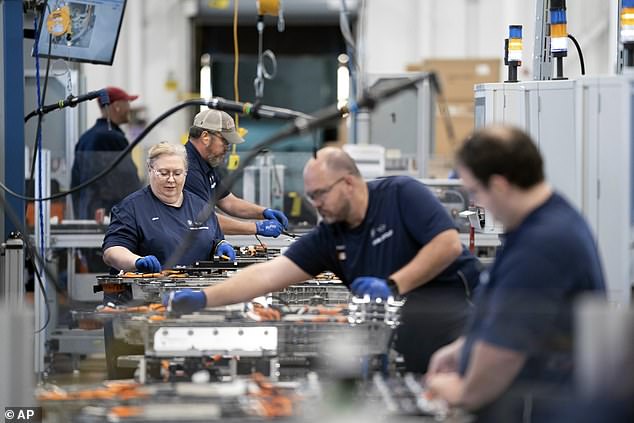BMW has confirmed its plans to invest $1.7 billion in the US, despite criticism from Trump officials and ongoing trade tensions. The German luxury car brand will upgrade its existing factory in Spartanburg, South Carolina, with a $1 billion investment and build a new battery plant in nearby Woodruff for $700 million.
Key Investment Details
The investment, initially announced in 2022, will support the production of BMW’s upcoming flagship electric SUVs, the iX5 and iX7, which are set to roll out in 2026 and 2028 respectively. These new models will incorporate BMW’s next-generation electric technology, promising up to 30% more range and 40% less energy loss than current models. High-performance trims of the SUVs are expected to have over 800 horsepower, more than triple the output of the average American car.

BMW’s commitment to the American South has been decades in the making. The company opened its South Carolina plant in 1994 and currently produces eight SUV models there. However, three decades of US investment haven’t translated to goodwill in the White House. In March, President Donald Trump imposed a 25% tariff on all imported cars and vehicle parts, a policy that could hit BMW particularly hard since many of its engine components are still produced in Germany.
Impact of Tariffs
Consumers are already seeing vehicle prices increase due to the tariffs. A study by Insurify predicts that BMW’s models will receive a 19% price increase in 2025 because of the President’s policy, the fourth highest among all US automakers. In April, White House Trade Advisor Peter Navarro criticized BMW’s business model, stating that assembling vehicles in South Carolina using imported parts ‘doesn’t work for America.’

BMW’s press team pushed back, noting the company’s long-standing investment in the region’s economy. ‘We export more vehicles from the United States than we import into the country,’ the company stated. ‘Plant Spartanburg generates a total economic impact of $26.7 billion for our state, supporting nearly 43,000 jobs and $3.1 billion in wages and salaries.’
Future Plans
Despite the controversy, BMW confirmed to Ward’s Auto that the 2022 EV investment is moving forward. The company is navigating challenges such as trade tensions with China, which have created parts shortages that could impact American factories. BMW’s CEO, Oliver Zipse, has led the company to offer a wide array of powertrain options for American consumers, including electric, hybrid, plug-in, and gas cars, with hydrogen models in the pipeline.



